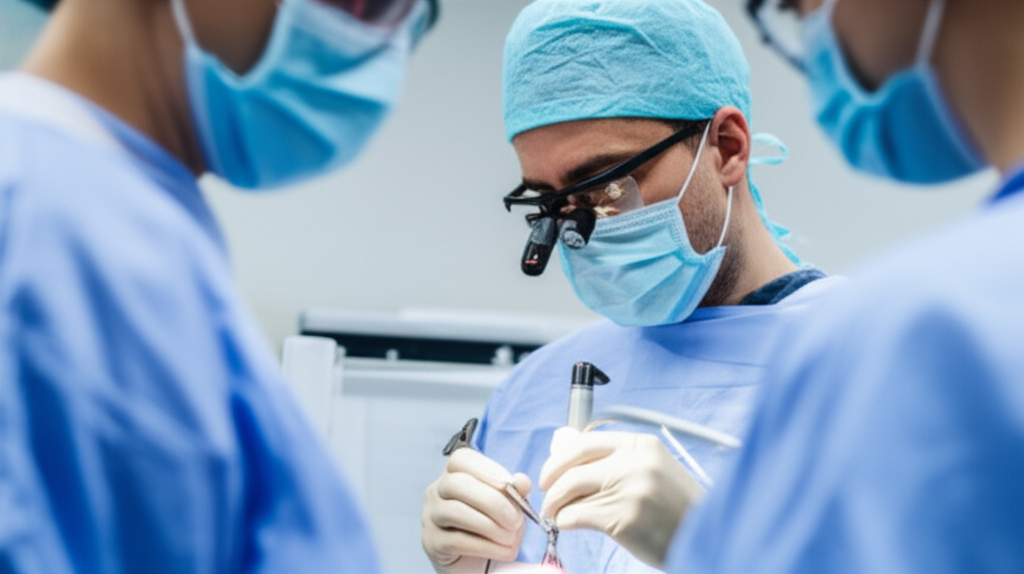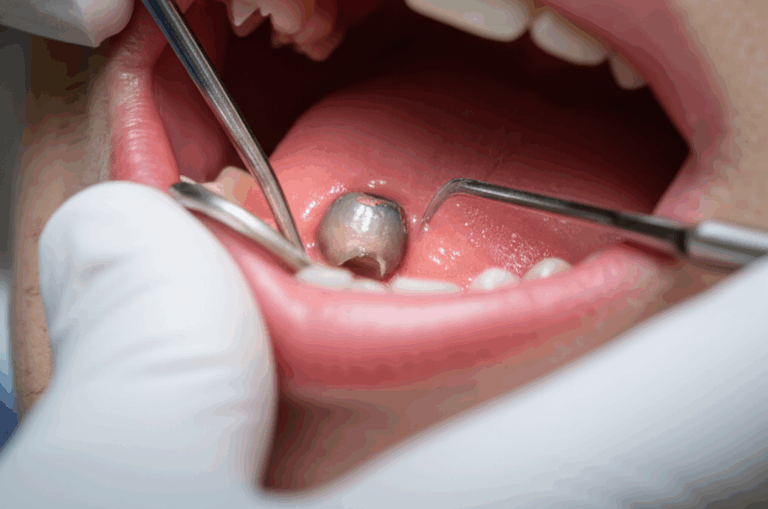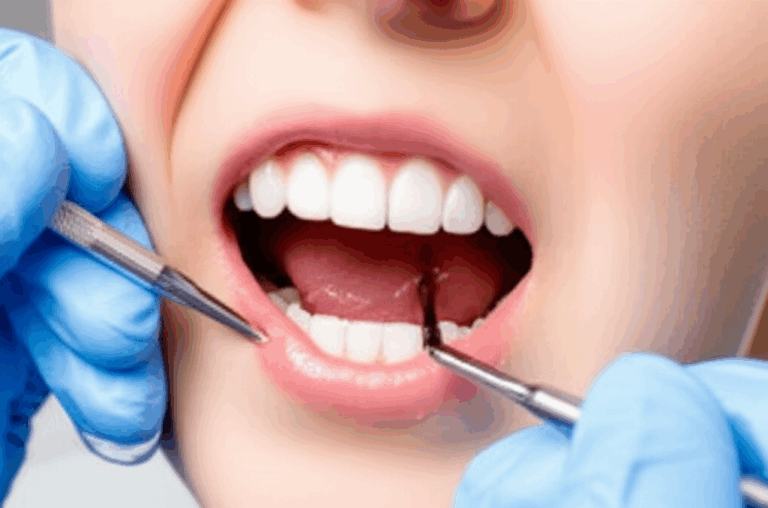
Can a Dentist Do Surgery? Understanding Who Performs Dental Surgical Procedures
Ever wonder if your regular dentist can actually do surgery, or if you need to go to a specialist for every big treatment? Let’s break it down: who does what, what happens, and how to make good choices for your teeth.
Table of Contents
1. Introduction: Why Does It Matter Who Does Your Dental Surgery?
Here’s something most of us think about: Can my regular dentist do surgery, or do I need to see someone else? A lot of people feel nervous about dental surgery. Maybe it’s just a simple tooth pull. Maybe you’re hearing about dental implants or gum surgery for the first time. No one likes surprises at the dentist!
The first thing to know: Not all dental surgery is the same. Some is really easy and quick. Some takes more skill. Knowing who does what—and when you need a specialist—can help save you time, money, and worry. In this article, I’ll talk about the most important stuff, tell some quick stories, and show you how to make the right choice for your teeth.
2. What Does “Dental Surgery” Really Mean?
When you hear “dental surgery,” what do you think? Maybe you picture people in masks with scary tools! But dental surgery really means any kind of treatment where the dentist has to cut, take out, or fix things in your mouth, like gums or jawbone. Sometimes, this is as simple as pulling out a baby tooth. Other times, it’s as tricky as fixing a broken jaw.
Small Surgeries:
- Simple tooth pull
- Small biopsies (removing a bit of tissue)
- Minor gum work like snipping a small band under your tongue or lip
Big Surgeries:
- Tough wisdom tooth removals
- Putting in implants
- Fixing up bone
- Straightening out a jaw
Not every “surgery” is a big, scary deal. Some you’re awake for, and you can go back to work or school soon after.
3. What Kinds of Surgeries Can a General Dentist Do?
Here’s some good news: Most general dentists know how to do a bunch of simple surgeries. They learn these things in dental school! Here’s what your regular dentist can usually take care of:
1. Simple Tooth Pulls
If your tooth isn’t stuck under the gum or jammed in, your dentist will often take it out right there in the office. They use numbing medicine so it won’t hurt.
2. Basic Root Canal Jobs
Root canals sound scary, but they save teeth. Sometimes, a dentist will open the tooth, clean out the sick part, and seal it up. If it gets really tricky, you might get sent to a specialist.
3. Small Gum Work
Dentists can fix gum shapes, take out a tiny piece for testing, or snip a frenulum (the line under your tongue or lip) if it’s giving you trouble.
4. Jawbone Smoothing
Called alveoloplasty, this just means fixing up the jawbone after pulling a tooth, so dentures fit well.
5. Small Biopsies
If your dentist finds something weird, they might take out a tiny bit to send for tests.
Dentists can do more than you might think! Some take extra classes to learn even more.
4. When Do You Need a Dental Specialist?
Sometimes, things are just too tough for a regular dentist to handle by themselves. But how do you know if you need someone else?
Some common reasons:
- The tooth is stuck, sick, or hard to get to (like sideways wisdom teeth).
- The surgery could hurt nerves or other important stuff.
- You need fancier tools, like special scans or machines.
- You have other health problems (like bleeding issues) that make surgery harder.
A good dentist knows when to bring in a specialist. They just want you safe and healthy.
5. Who Are the Different Dental Specialists?
Let’s see who’s who in dental surgery:
| Specialist | What They Do | Common Surgeries |
|---|---|---|
| Oral & Maxillofacial Surgeon | 4-6 more years of surgery training | Stuck wisdom teeth, implants, jaw work, fixing broken faces, bone repair |
| Periodontist | Gum and jaw expert | Gum patches, deep cleanings, tooth lengthening, some implants |
| Endodontist | Root canal expert | Special root canals, root tip removal, small surgery on tooth roots |
| Pediatric Dentist | Treats kids | Pulling teeth, uncovering baby teeth, some gum surgeries |
| Prosthodontist | Tooth fixer and replacer | Implants, crowns, bridges, making new teeth |
Most times, your dentist works with a china dental lab to make things like crowns or dentures for surgery.
6. How Are Dentists Trained to Perform Surgery?
All dentists start in dental school. For four years, they learn about teeth, gums, jaws, faces, handling pain, and always keeping things super clean! They practice on fake mouths before working with real people.
After dental school:
- Dentists can take more courses to get new skills.
- Some do special programs to learn even more, like about implants.
- Specialists go through 4-6 more years of hospital training, then take tough tests.
So when you’re in the chair, you’re with someone trained and ready.
7. Why Might Your Dentist Refer You?
No one dentist can do it all. Sometimes, I see a tricky case and we talk about sending the person to a specialist. Here’s why:
- Too Hard: Surgery close to nerves or sinuses is risky.
- Other Health Issues: Some people are on blood thinners or have medical stuff going on.
- Not Enough Practice: If a dentist isn’t comfy or doesn’t do it a lot, the expert should help.
- Special Tools Needed: Some work needs scans or sleep medicine only found in special places.
Always ask your dentist why they think you should see someone else. Good dentists like your questions!
8. What Are the Most Common Dental Surgeries?
You might be surprised how many folks around you get dental surgery! Here are common ones and who usually does them.
| Procedure | Who Often Does It | What It Is |
|---|---|---|
| Simple Tooth Pull | General Dentist | Taking out easy teeth |
| Tough Tooth Pull | Oral Surgeon | Stuck or weird-shaped teeth |
| Putting in an Implant | Oral Surgeon, Periodontist | Metal rod in jawbone for a new tooth |
| Root Canal (Easy) | General Dentist, Endodontist | Cleaning sick stuff out of tooth |
| Root Tip Surgery | Endodontist | Removing root tip after root canal didn’t fix it |
| Gum Patch | Periodontist | Adding gum where it’s too thin |
| Bone Patch | Oral Surgeon, Periodontist | Adding bone under gums for new teeth or dentures |
| Small Mouth Biopsy | General Dentist, Surgeon | Taking a little piece out for testing |
Some of these need work from a crown and bridge dental laboratory or an implant lab to make the right parts for your teeth.
9. What Risks or Problems Can Happen With Dental Surgery?
Any surgery, even easy stuff, can have some risk. Luckily, dental surgery is pretty safe when done by people who know what they’re doing. Here’s what to watch for:
Possible risks:
- Infection: There’s always germs in our mouth, so dentists work to keep it clean.
- Bleeding: Usually stops easy.
- Swelling and bruising: Not too bad, goes away after a few days.
- Nerve hurt: Rare, but could happen near certain nerves.
- Dry socket: Sometimes happens after tooth pulls. Hurts, but they can help with it.
- Sinus trouble: For upper teeth near sinuses.
Your dentist or surgeon will tell you what to look for and how to heal best. Always follow their recovery rules!
10. What’s Recovery After Dental Surgery Like?
Everyone’s recovery is a little different, but there are some basics.
What happens:
- Numb feeling wears off in a few hours.
- Pain, puffy face, and maybe bruises for a couple days.
- Eat soft stuff and skip hot drinks after.
- Keep your mouth clean, but be gentle.
- Take any pain pills or medicine exactly as the dentist says.
Here’s a list of ways to make things better:
- Rest up for a day.
- Use an ice pack if your face is puffy.
- Don’t spit or use a straw—it can mess up healing.
- Call your dentist if you really hurt, bleed, or get more swollen.
Ask your dentist what’s normal for you; every surgery is different.
11. How Do Dental Labs Support Surgery?
Behind most dental surgery, there’s a smart lab team! Dental labs make the crowns, bridges, implants, and dentures dentists need.
- A dental ceramics lab makes fake teeth that look real.
- Digital labs use computers and 3D printers for a perfect fit and fast help.
- Got something you take in and out? Labs make dentures, mouth guards, and retainers for everybody.
It’s really a team game: dentist, specialist, and lab all working for your new smile.
12. Conclusion: How to Choose the Right Care for You
What I always tell patients: You should feel safe and calm about your dentist. Most dentists can do a lot of surgeries. For the tough ones, there are experts.
Not sure who you need? See your regular dentist first. They’ll check things out and tell you your choices. If you need to go somewhere else, don’t worry—it just means you’ll get the best help.
Your smile matters!
13. Key Points to Remember
- General dentists can do many common surgeries: simple tooth pulls, easy gum work, biopsies, and more.
- Oral surgeons, gum experts, root canal experts do the more tricky stuff.
- Dentists train a lot and will send you to a specialist if it’s safer.
- Don’t be shy—ask questions about your treatment or your dentist’s background.
- Dental labs, like a china dental lab, make crowns, bridges, implants, and other helpful things.
- Healing is usually quick, but always listen to your dentist’s advice.
- If you have a tough tooth problem, your dentist will tell you if you need an expert.
- Dental surgery is very common—and safe with trained people.
Take care of your teeth, trust your dental team, and keep smiling!








